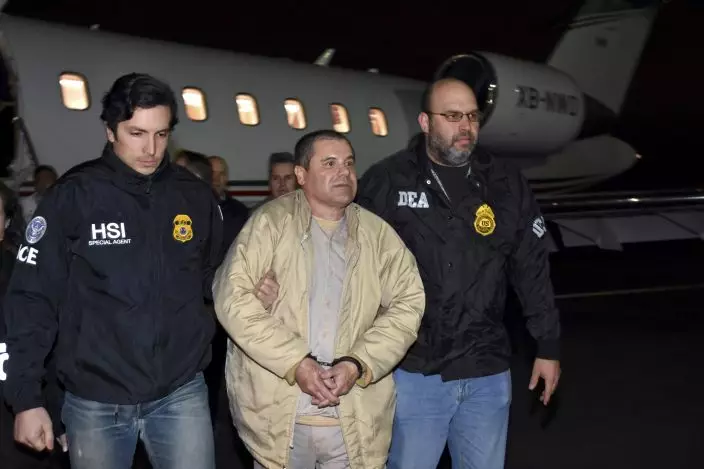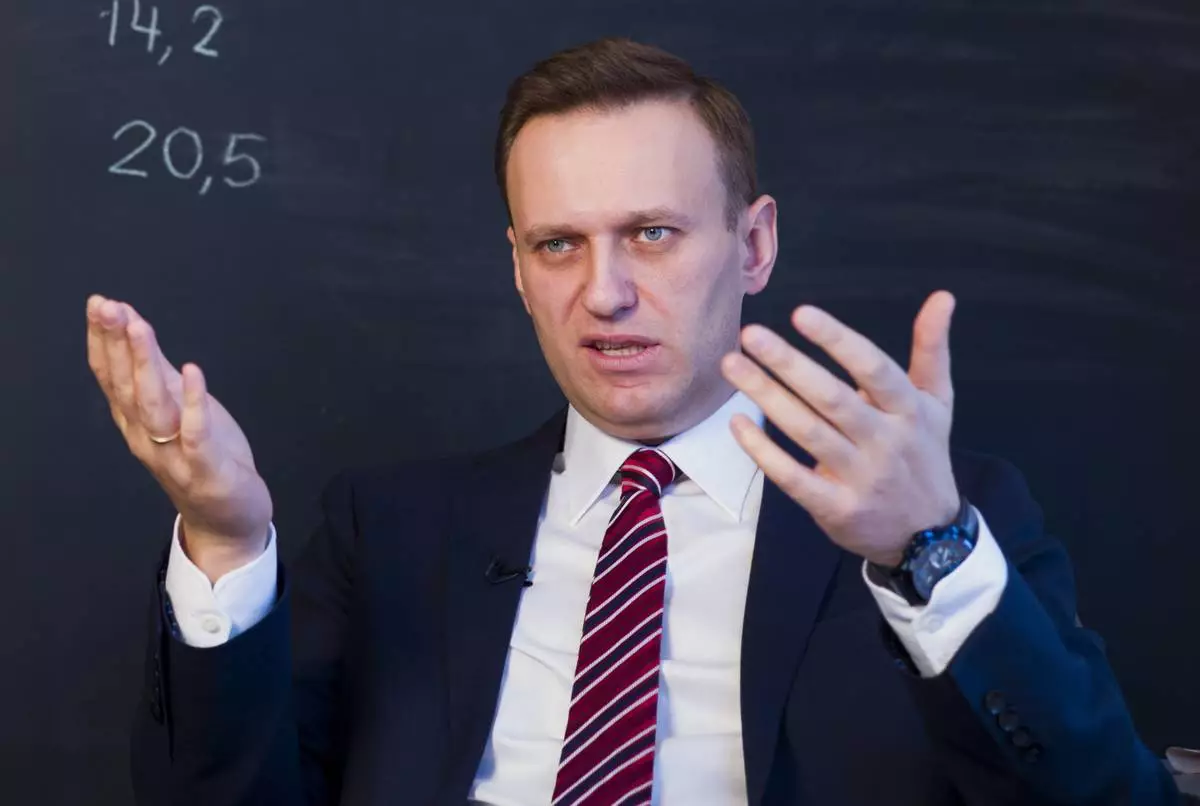Will the notorious Mexican drug lord known as "El Chapo" go quietly?
For Joaquin Guzman, that's the biggest question at his sentencing in New York City on Wednesday. The highly-anticipated hearing could be his last chance to speak publicly before spending the rest of his life behind bars at a maximum security U.S. prison.
Guzman, 62, was convicted in February on multiple conspiracy counts in an epic drug-trafficking case. The guilty verdict at an 11-week trial triggered what the government says is a well-justified mandatory sentence of life without parole .

FILE - In this Jan. 19, 2017, file photo provided by U.S. law enforcement, authorities escort Joaquin "El Chapo" Guzman, center, from a plane to a waiting caravan of SUVs at Long Island MacArthur Airport, in Ronkonkoma, N.Y. Guzman, who was convicted in February 2019 on multiple conspiracy counts in an epic drug-trafficking case, will be sentenced in a New York courtroom on Wednesday, July 17, 2019. (U.S. law enforcement via AP, File)
The evidence showed that under Guzman's orders, the Sinaloa cartel was responsible for smuggling mountains of cocaine and other drugs into the United States during his 25-year reign, prosecutors said in court papers re-capping the trial. They also said his "army of sicarios" was under orders to kidnap, torture and murder anyone who got in his way.
The defense argued he was framed by other traffickers who became government witnesses so they could get breaks in their own cases.
Guzman has been largely cut off from the outside world since his extradition in 2017. Wary of his history of escaping from Mexican prisons, U.S. authorities have kept him in solitary confinement at a Manhattan jail and under close guard at his appearances at the Brooklyn courthouse where his case unfolded.
While the trial was dominated by Guzman's persona as a near-mythical outlaw who carried a diamond-encrusted handgun and stayed one step ahead of the law, the jury never heard from Guzman himself, except when he told the judge he wouldn't testify.
But evidence at Guzman's trial suggested his decision to stay quiet at the defense table was against his nature: Cooperating witnesses told jurors he was a fan of his own rags-to-riches narco story, always eager to find an author or screenwriter to tell it. There also were reports he was itching to testify in his own defense until his attorneys talked him out of it, making his sentencing a last chance to seize the spotlight.
It's likely whatever he says on Wednesday will stick to the defense script that he was the fall guy for other kingpins who were better at paying off top Mexican politicians and law enforcement officials to protect them while the U.S. government looked the other way.
Prosecution descriptions of an empire that paid for private planes, beachfront villas and a private zoo were a fallacy, his lawyers say. And the chances the U.S. government could collect on a roughly $12.5 billion forfeiture order are zero, they add.
The goverment case, defense attorney Jeffrey Lichtman said recently, was "all part of a show trial."










